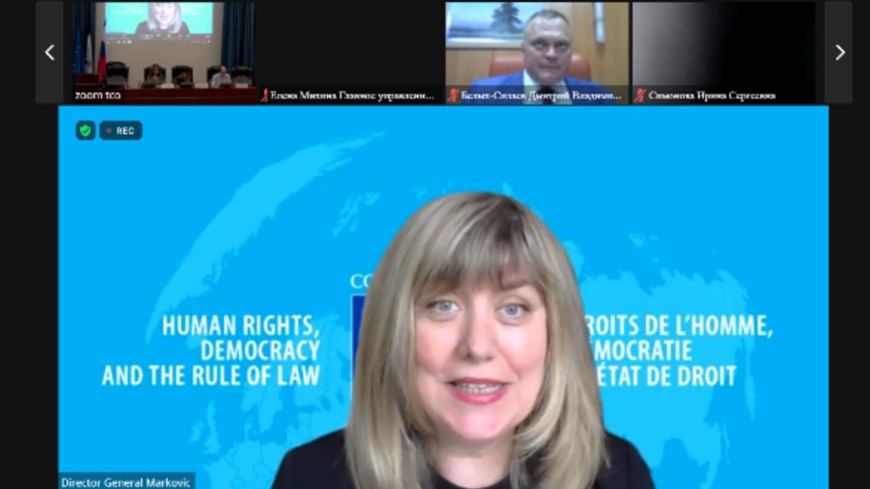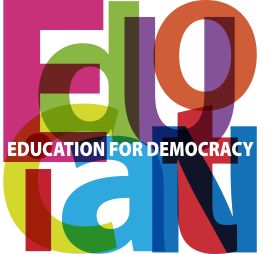“Multiperspectivity and the teaching of history within the vision of the Observatory and the Council of Europe cannot be achieved when systems only look within their borders […] The Observatory’s mission as an Enlarged Partial Agreement amplified by a growing membership is ultimately to impact the way young people understand relationships of events in time, so that they can appreciate cause and effect, change and development.”
These important highlights were part of the allocution of Director General of Democracy, Ms Snežana Samardžic-Markovic during the latest annual in-service training courses for Russian civil servants held by MGIMO European Studies Institute in Moscow, Russian Federation. The event was opened on 17 May by Anatoliy Torkunov, the Rector of MGIMO University, and Bjørn Berge, the Deputy Secretary General of the Council of Europe. Welcome speeches have also been made by Human Rights Commissioner Tatiana Moskalkova, Deputy Foreign Minister Aleksandre Grushko, and Deputy Minister of Justice Mikhail Galperin.
The session dedicated to the Council of Europe’s Observatory on History Teaching in Europe of 18 May also brought in the interventions of Ms Olga Podberezkina, Advisor within the Ministry of Education and member of the Observatory’s Governing Board representing the Russian Federation, as well as Mr Aleksandr Orlov, Executive Secretary of the Trianon Dialogue and former Ambassador Extraordinary and Plenipotentiary of Russia to France and the Principality of Monaco. Both interventions reinforced the commitment and interest of the Russian Federation in the initiative and its support throughout its initiation phase.
“The more countries join the Partial Agreement, the more well-founded and comprehensive its work and conclusions will be. Its impact will also be wider and deeper, reaching the young generations in an effective way – ensuring that the citizens of the future have a critical and non-biased onlook on Europe’s and world’s history events.” Ms Samardžic-Markovic concluded by thanking the consistent support of the Russian Federation to the launching of the Observatory on History Teaching in Europe, among its 17 founding members.
The MGIMO courses are being taken this year as in-service training by more than 500 Russian officials and numerous others from neighboring states. In addition to the session dedicated to the Observatory, the Programme addressed a wide range of European legal issues, including the latest developments in the jurisprudence of the European Court of Human Rights, an emerging legal framework on artificial intelligence, e-justice and cybercrime, human rights in health and sport, modern legal education (HELP Programme).




